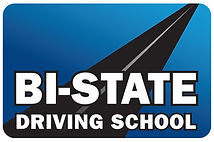
Formally a Sears Driving School with 43 + years of service
Serving both Kansas and Missouri
Office Hours Monday - Friday 10 A.M. to 5 P.M. Phone (913)648-3452 Cell (913) 609-0139
Email: info@bistatedrivingschool.com
Office Location: 8600 W 95th St. Ste 1001 Overland Park, KS. 66212
Tuesday evenings will begin May 21st 4 to 8 P.M.
Starting June 1st our prices for our Full Program will be increasing.
Saturday - Year Round 8 A.M. - Noon Call (913) 648-3452 Gift certificates Available Hiring Full and Part Time Drivers
We except payments over the phone, day of class or you may pre-register at our office M-F 10 A.M.- 4:30 P.M. Call (913) 648-3452 CASH, DEBIT/ Credit Cards - NO CHECKS
Gaining Experience
Practice makes perfect. Don’t worry if you make mistakes—there is no such thing as a perfect driver. New drivers are especially vulnerable to messing up here and there, but here are a few tips to help you get started.
Good Practices
-
Know your car and how to do basics, such as pumping gas, changing a tire, jump-starting the car, and adding windshield washer fluid.
-
Always let your parents or guardian know where you’re going, and when you’ll be back.
-
Try to make short trips when you’re just starting out driving. Little by little, you can increase your distances, but don’t try too much too soon.
-
Don’t try to speed up at yellow lights or get away with a quick call while you’re driving. These type of risks are never worth it—especially when a new and inexperienced driver is at the wheel.
-
Walk before you can run. Before you take a long road trip, make sure you can handle driving to school or work. Before you begin driving at nighttime, make sure you have daytime driving totally down. Before you start driving friends around alone, practice driving them around with a responsible adult in the car, too
Awareness is Vital
-
Although it’s very tempting to drive around with your friends, try to limit your passengers in your first year of driving. They can be very distracting.
-
Limit your nighttime driving. Darker means harder to see, and drunk drivers tend to drive more at night. You’re also more likely to be sleepy at the wheel at nighttime.
-
Never forget to use your signal, mirrors, and seat belt. Be very aware of the drivers around you, from the car right in front of you, to the cars way up ahead on the road.
Never underestimate the value of knowing the basics.
